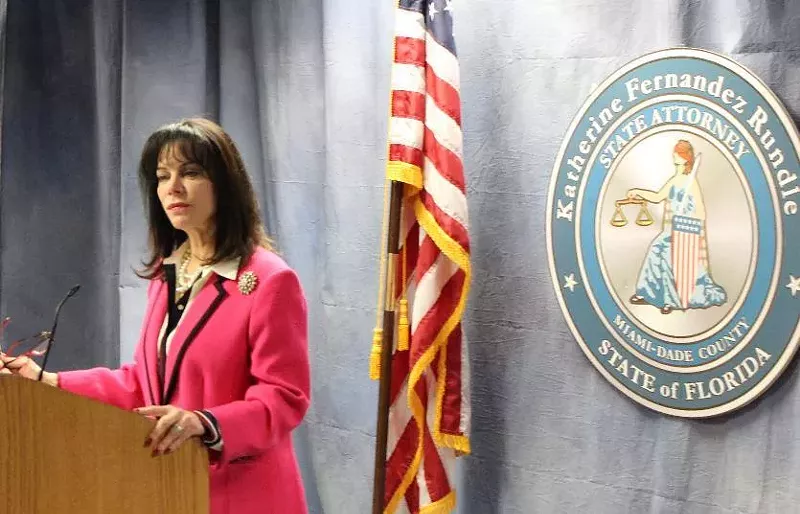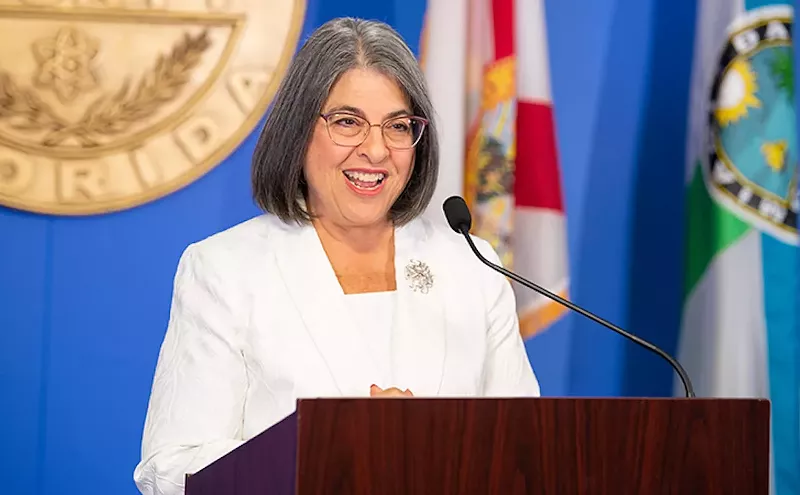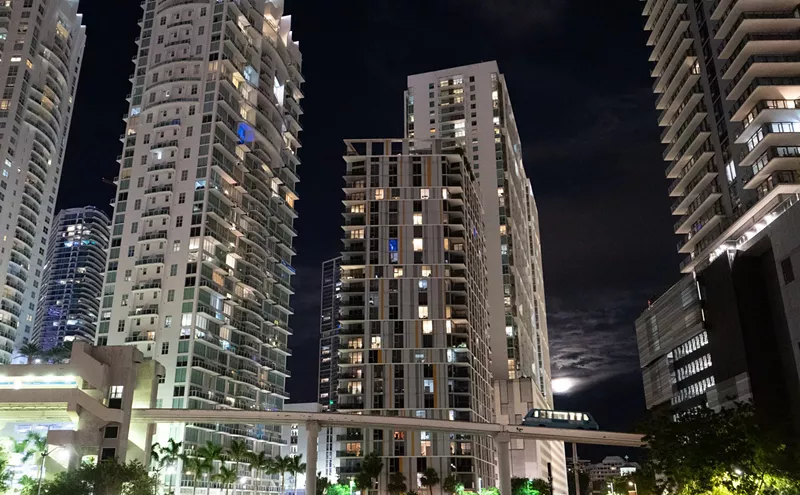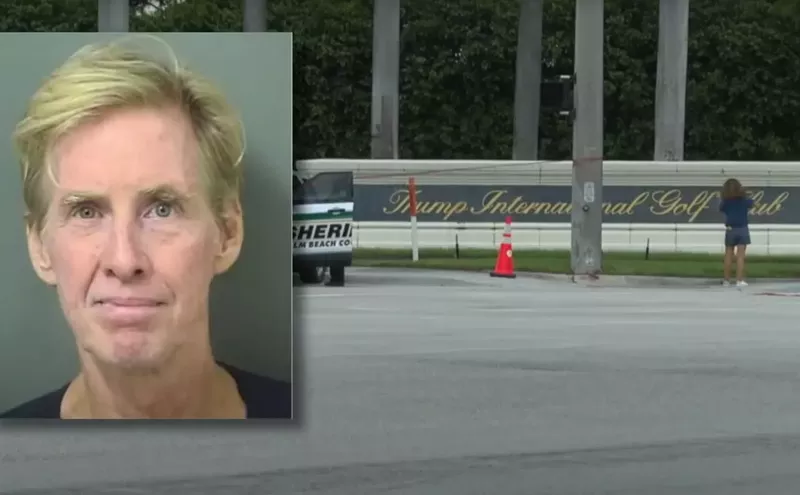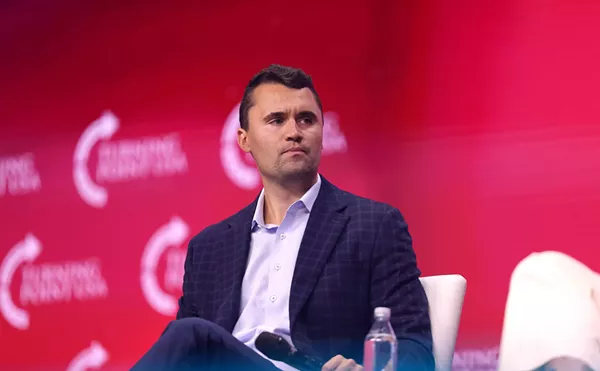The next month, New Times followed up with a deep dive outlining the egregiously slow pace Rundle's office takes when investigating shootings by cops — a tactic that local defense lawyers say prevents victims of police brutality from filing civil rights lawsuits. When investigations hang open, lawyers and the public are typically prevented from obtaining documents or evidence.
Now, two months after that first story was published, Rundle's office has finally closed the McCoy case after eight years and also told the Miami Herald that her office is revamping its policies to speed up police-shooting investigations.
Rundle says her office will begin posting updates on each open police-shooting investigation on the state attorney's website, including updates on which documents her office still must obtain from police.
“Historically, police-involved shooting investigations have taken my prosecutors far too long to resolve,” Rundle told the Herald's David Ovalle. “In our effort to make every police-involved shooting and designated in custody death investigation totally complete, absolutely transparent and in line with existing Florida law the important consideration of timeliness has suffered.”
By clearing the officer who killed McCoy, Rundle keeps her 24-year streak of never charging a Miami-area cop for killing while on duty. Investigators noted that McCoy did not have a weapon when he was shot.
The close-out memorandum notes Rundle's office ruled in 2014 that the officers were justified in killing McCoy, but then somehow let the case hang open another three years.
Critics have long hammered Rundle for acting only when confronted with negative press. After the Herald complained in 2015 that her office had not closed the investigation into the killing of black 16-year-old Joeell Johnson after five years, she closed it a month later.
Rundle charged Jonathan Aledda, the North Miami cop who shot unarmed Charles Kinsey in the leg, with attempted manslaughter eight days after New Times published a recording of former North Miami Police Chief Gary Eugene stating Aledda was told not to fire his gun.
Infamously, Rundle had previously closed the case into Darren Rainey, the mentally ill man many say was scalded to death inside a prison shower in 2012, but she reopened the investigation only after the Herald's Julie K. Brown published a long investigation into Rainey's case. Rundle declined this year to prosecute the guards involved in Rainey's death, leading her hometown Miami-Dade Democratic Executive Committee to ask her to resign. She has said she will not honor the request.
New Times' story was only the latest complaint about Rundle's plodding pace when it comes to shootings by police: The Herald noted in 2011 that the cop-case backlog stretched for close to a decade and that even some police unions, including the Dade County Police Benevolent Association, were upset about her office's lax record when it comes to killings by state employees.Critics have long hammered Rundle for only acting when confronted with negative press.
tweet this
But the backlog persisted. Last month, New Times reported that her office still had 59 open investigations into shootings by police dating to August 2008. The McCoy case, which Rundle closed today, was the second-oldest one on the books. In an April story criticizing the slow pace of the Jacksonville State Attorney's Office, defense lawyers in North Florida were upset that the office had let just five cases sit open for less than a year.
Today the Herald reported that the backlog had been cut to 48 open cases, but questions remain as to whether simply posting investigation updates online will be enough to spur Rundle's office to close cases quickly and humanely. Defense lawyers in Miami have questioned whether Rundle's slow pace is an intentional tactic used to prevent local cops from getting sued.
Last month, Gregory Samms, a lawyer representing the McCoy family in a wrongful-death lawsuit, described the Sisyphean nightmare he'd been pulled into when trying to sue Miami Beach Police because Rundle hadn't yet closed her investigation. Once or twice a year, he told New Times, he drives to the Miami-Dade County Courthouse and files a motion to prevent the lawsuit from getting dismissed, but he's been barred from subpoenaing more evidence because of Rundle's inaction.
"There's no excuse for eight years," Samms said last month. "You can’t even give me a reason for eight years? How damaging is it to a civil rights case? It makes winning one almost impossible."
In a close-out memo Rundle's office provided to New Times, her office cleared former MBPD Officer Adam Tavss, the cop who shot McCoy. In 2009, Tavss killed two unarmed men in four days: McCoy was shot dead after allegedly stealing a taxi and trying to flee cops, but his family says he was unarmed, and no gun was found on his body when he was killed. Tavss was later booted from the force and convicted of running a marijuana growhouse.
"The investigation has determined that the shooting officers were legally justified in their use of force; therefore no criminal charges will be filed against the officers," Rundle wrote today in a memo to MBPD Chief Daniel Oates.
Tavss wasn't the only cop in the case who had drug issues: The case's lead detective, Reinaldo Casas, was fired after testing positive for cocaine. He got his job back by claiming he had used a cocaine-infused erectile dysfunction cream by accident. (Investigators said the cream "appeared to be homemade," and Casas said he got it "from an old Cuban guy.")
In the close-out memo, investigators noted that McCoy allegedly stole a cab and crashed it going the wrong way on the MacArthur Causeway. Cops shot multiple times at McCoy, who at one point was seen on surveillance video picking something up from the ground and then likely tossing it "in an upper body movement." But investigators said no gun was ever recovered at the scene, and a knife found in the bushes nearby could not be traced to McCoy.
"No firearm was found on the body of Mr. McCoy or inside the stolen taxi cab," investigators wrote.
The close-out memorandum references the fact that the case took a remarkably long time to shut. However, the case file doesn't adequately explain why. The report mentions that, though the killing occurred in 2009, police ballistics reports did not become available until 2010 and 2011. The memo then mentions that one of the investigators involved left the office in the next few years, but doesn't otherwise explain why it took from 2011 to 2014 to clear the cops involved.
From there, Rundle said her office then re-investigated the whole case and obtained more evidence and new witness testimonies. It took another three years to close the case.
Miami defense lawyers have noted that Rundle does not seem to take the same level of care when charging young, black 20-year-olds with murder or drug possession.
"There has been significant delay in the review of this matter," the close-out reads.

